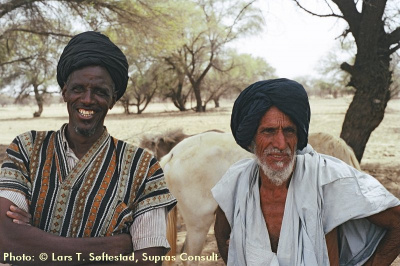Development Cooperation Sarcasm
Date posted
Complexities and Complications
Development cooperation is serious businessn for us that work on often extremely complicated issues, involving an untold number of variables, as available in both environment and in culture. Furthermore, a large number of other stakeholders are involved, variously defined as, among others, "beneficiaries" and "project-affected". This term is very complex, along many variables, including ethnicity, gender, kinship, language, race, religion, social organization, and values, to name some of the key ones. Our work takes a long time, as a typical project can last up to 6-7 years.
In many projects the so-called experts have diverse backgrounds. They earlier invariably belonged to the category "expat", but are increasingly citizens of the country where the project or investment operation is located. In my case, as a social anthropologist, in any one project I will work with people local people and expats, trained in social sciences and natural sciences. Importantly, in addition to their specific expertise, they themselves likely come from different cultures found in as many countries. Then there are the fact of local stakeholders be they located in public sector, private sector, and ciivl society, that are not involvedin the project4 but have a strong interest in it. It follows that inter-disciplinary – as well as cross-cultural – approaches will be central to defining problems, causes, and goals.
To further complicate matters, while development projects aims to change societies in various ways, on various levels, these societies are themselves changing, aside from whatever the project may contribute to. In other words, the baseline situation that oftentimes is identified during preparation of a project, including the overall rationale for the project in the first place, will likely change during implementation. It follows that in some cases those responsibe for project management may find that the original goals have to be revisited and revised, for example, during a mid-term evaluation. One may even have the frustrating experience of observing how a project's goals seem to recede into the future.
Entanglements and Problems
Given the above brief overview of some aspects of implementing an investment operation or a development project, it it clear that things do not necessarily happen the way they should. Things can go wrong, and do get wrong. Lacking progress and conflicts internally, between the project management and stakeholders, do occur. The result may, in a worst case scenario, be termed a "white elephant".1/ This oftentimes happens because ground truthing is not good enough, because staff – national as well as international – are not up to managing the unforeseen situations that occur (specifically as regards managing conflicts), because macro-level and micro-level external issues change and interfere, and/or because of various forms of corruption. Hard work to address the problems may or may not have the hoped-for effect.
Enters the Sarcasm
It can be debated if the correct label to use is "satire" or "sarcasm". Here the decision has been made to use "sarcasm". Satire explicitly insults its subject, while sarcasm implicitly insults someone. Further, while satire seeks to entertain its audience, sarcasm can be understood to aim to change its audience's way of thinking.
Under these circumstances project staff and others familiar with a project will naturally react – frustration, criticism, and more is the order of the day. Some among them manage to rise above this and, putting pen to paper, write sometimes hilarious, but always critical, texts that summarize their experiences. The better ones are constructive in that they give reasons for the problems, and propose ways out, if not in this project, then in future projects. On an individual psychological level these texts function as outlets for the bent-up anger that project staff experience. Further, removed in space and time, there are those stakeholders who, informed by years of working in this field, manage to elicit the essence of how projects work or do not work, and write sarcastic as well as funny, texts that present this.
Evaluation reports that dig deep, and that unearth the causes for problems, will obviously continue to be the standard evaluation texts. At the same time, I find that some of these sarcastic texts – partly mini-evaluations in their own right – also represent useful point of view, and could be even valuable.
These sarcastic texts have always interested me, and over the years I have collected those I have come across. I present them here for your enjoyment and use, as available on Devblog. They are presented in no particular order; listed in more or less the order I came across them. Comments are welcome, as are tips about further texts that can be included. Please use the comment section at the bottom of this page.
List of Texts
- "World Bank: Project Christmas?". URL: https://devblog.no/en/article/world-bank-project-christmas
- (more to come!)
Lars T Soeftestad
Notes
1/ White elephant: Refers to a very expensive project that fails to deliver on its function and/or becomes very costly to maintain. From a financial point of view it refers to an investment that is so expensive to operate and maintain that it is extremely difficult to make a profit.
2/ Image credit: Supras Ltd. May 2004. Pastoralists from Mali, south of Ayoun el Arous, Hodh El Gharbi, in southeast Mauritania.
3/ Permalink. URL: https://devblog.no/en/article/development-cooperation-sarcasm
4/ This article was published 31 May 2016. It was revised 15 August 2024.

Add new comment